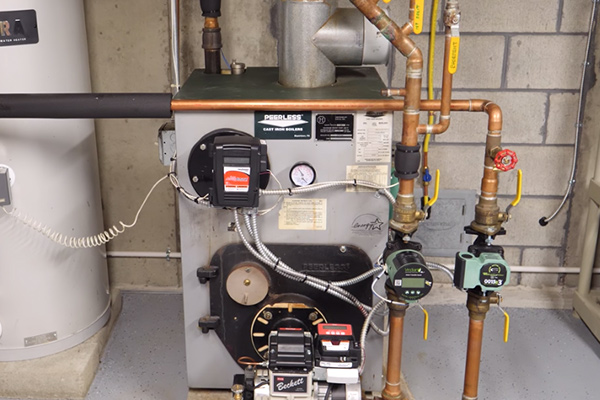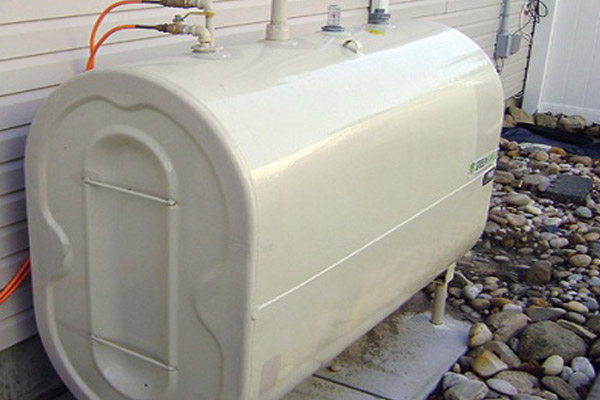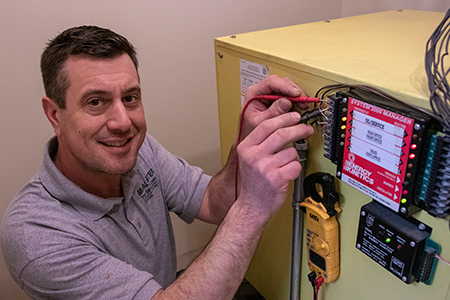The Importance Of Regular Heating Oil Filter Replacements

Home heating is expensive. Using our furnace or boiler accounts for almost half of the monthly energy bill, significantly more than the energy consumption of other home appliances. Therefore, to save energy, start focusing on heating. This article discusses how you can achieve increased efficiency in your home. One task that is pivotal towards energy reduction is heating oil filter replacements. This article explains more about this energy-saving habit.
Read on to learn more about oil filter changes and how crucial it is to your home’s heating costs and your system’s performance and lifespan.
What is a Heating Oil Filter?
Contents
- 1 What is a Heating Oil Filter?
- 2 The Importance of Regular Heating Oil Filter Replacements
- 3 The Benefits of Replacing Your Heating Oil Filter
- 4 How Often You Should Change the Heating Oil Filter
- 5 How to Tell When Your Oil Filter Needs a Replacement
- 6 How to Change a Heating Oil Filter
- 7 Tips for Heating Oil Filter Replacement
- 8 Call McAllister Energy For All Your Home Heating Needs
Homes with oil-powered appliances have a heating oil filter. The fuel passes through this cartridge to eliminate impurities before it goes to the burner. The oil filter prevents dirt and moisture from clogging the fuel nozzle. It also ensures that the pump works properly. Remember that an operational filter is necessary to prevent system lockouts and damage.
Related Article: How Does Oil Heating System Work?
The Importance of Regular Heating Oil Filter Replacements

Filters work successfully when they catch dirt. However, it also means that the surfaces of the filter become less porous as it performs this vital task. As a result, the flow rate continuously drops. Once the filter is clogged, some of the dirt may also enter the system, possibly leading to an obstruction. To avoid this issue, the oil filter needs to be changed before it gets to this point. Keep in mind that the new oil filter will also eventually need a replacement down the line. Make this task a part of your regular heating system tune-up checklist. The good news is that replacing the filter is a fast and easy process that has many benefits.
The Benefits of Replacing Your Heating Oil Filter

Replacing your heating oil filter consistently will reap many positive effects. It may seem like a trivial task, but experts state that it is a crucial one that all oil furnace or boiler owners should do. Don’t underestimate the benefits you will get from it. Listed here are several of the benefits of changing your heating oil filter regularly:
Related Article: What Do Heating Oil Additives Do?
Improve Heating Oil Equipment Reliability
Heating systems require a steady flow of clean oil to operate. Interfering this oil stream can reduce the system’s performance. A dirty filter can interfere with it, which may cause your heating oil system to struggle in heating your home. The worst-case scenario is that the system breaks down, leaving your family freezing in the coldest months of the year. Don’t let this happen. Ensure that your system receives regular maintenance to improve its reliability. Change the filters at fixed intervals so the equipment runs smoothly throughout the heating season.
Maintain High Heating Efficiency
The initial system efficiency on your system’s label doesn’t last. A gradual decline occurs because of worn-out parts and dirt build-ups. Inefficient furnaces use more fuel to generate heat. This isn’t good for the environment, which already suffers from high carbon emissions. Schedule yearly professional system maintenance to keep the unit’s efficiency high. HVAC technicians can conduct a thorough check and maintenance. Don’t forget to replace the oil filter per the manufacturer‘s recommendations. These practices help ensure that your HVAC unit remains as good as new.
Related Article: Can I Put Diesel Fuel in My Home Heating Oil Tank?
Prolong HVAC Service Life

Clean oil filters maintain the cleanliness of your heating system. It helps the unit to prevent hazards like dangerous clogs easily. They reduce the burden on each component, so they last longer. As a result, the heating system benefits from a prolonged lifespan. It can work for over ten years like a reliable companion. You don’t have to spend thousands of dollars on getting an HVAC system replacement early. You save more money while enjoying excellent HVAC performance.
Save Significant Money
As stated earlier, clean oil filters lower energy usage. Apart from the decreased emissions, you will also save money on reduced energy bills. This benefit is especially welcome during periods of uncertainty when there are low supplies and high fuel oil prices. You can help ensure that your heating costs stay manageable year after year.
Related Article: How to Read Your Home Heating Oil Tank Gauge
How Often You Should Change the Heating Oil Filter
At the minimum, it is recommended that you replace the heating oil filter once a year. Change it before the heating season starts so the system can flawlessly filter the oil. Check the system’s performance throughout the winter. If there are decreased performance and filter clogs, increase the frequency of oil filter replacement to twice a year. Conduct a replacement halfway through the winter to prevent the issue from recurring.
How to Tell When Your Oil Filter Needs a Replacement
Here are several signs your oil filter needs to be replaced:
- Slow Starts: You know how your furnace or boiler behaves after using it for a while. Check it for strange behaviors like odd noises or slow starts. A clogged filter may be causing the system to experience difficulties.
- Dark Smoke: Your system emitting light-colored smoke is typical. However, it is concerning to see dark smoke rising from the chimney. It means that water is passing through the oil filter. Remember when was the last time you replaced the oil filter. If it has been some time, the old filter may be full of debris and moisture. It should be taken out and replaced with a new one.
- Subpar Performance: Do you feel cold in your home? Does the temperature change when you crank up the thermostat settings? A dirty oil filter may be why your heating system isn’t providing adequate warmth. It may also cause the system to turn off suddenly. The clog may be on the filter or in a component near it.
Related Article: The Best Ways To Prevent Running Out Of Heating Fuel This Winter
How to Change a Heating Oil Filter

Here are the steps on how you can replace the heating oil filter:
- First, turn off the power before doing anything to the system. This helps you remain safe.
- Place a pan under the filter to capture oil drops and prevent a mess.
- Turn the shut-off valve on the heating oil tank to avoid soil flow.
- Remove the oil filter canister’s base.
- Take out the used cartridge and gaskets.
- Clean the filter canister and pump strainer before putting in a new filter.
- Assemble the canister again and mount it in place.
- Reopen the supply valve and switch the power on again.
- Loosen the screw to the air bleeder so gas can escape.
- Let the oil burner run and check its behavior.
- Examine the system for oil leaks.
- Once everything is in order, dispose of the oil filter to finish the task.
Tips for Heating Oil Filter Replacement
Here are some tips when conducting a heating oil filter replacement:
- Oil can irritate your skin, so you must wear gloves to protect your arms and hands. Wear an apron or something similar to prevent the oil from staining your clothes.
- Handle the canister carefully. Ensure you adequately support it with your hand so you don’t drop it and damage the pipe.
- Organize the washers and rings carefully. These are small but crucial components in assembling your filter, so you must not lose them.
- Stay vigilant, as leaks don’t always show up immediately. It may take up to 48 hours before they become obvious.
- Replacing your oil filter can be a messy and dangerous task. If you are unsure of what to do, hire a professional to help you do it instead.
Related Article: How Much Heating Oil Will I Use A Day?
Conclusion
Oil filters ensure that furnaces don’t get clogged. They make your heating system operate smoothly, but only temporarily. They must be replaced constantly so the system stays highly efficient and reliable. Conduct regular filter replacements. If you can’t do it, call for professional assistance to enjoy a stress-free replacement.
Related Article: What Size Oil Tank Do I Need For My Home?
Call McAllister Energy For All Your Home Heating Needs

For all your HVAC and oil delivery needs, contact McAllister Energy. We have some of the most highly qualified and professionally certified technicians in Camden County, New Jersey. Each of our friendly techs can conduct all kinds of HVAC services, such as oil tank upgrades, boiler repair, ductless installations, furnace replacements, and more. We have various oil delivery plans and financing options. This way, you can customize your fuel deliveries to meet your needs. Our heating oil delivery and HVAC services are affordable and are done accurately and promptly at all times. Click the link to view our service area.
All of our services come with a guarantee. Our HVAC maintenance services improve your energy efficiency and home comfort while decreasing your HVAC costs. We can also assist you when you need to replace your heating and cooling system. We will help you find the best make and model for your home without sacrificing your budget. Our experts have the skills, training, and experience to ensure that all your home comfort needs are met. Book an appointment with us today. Call McAllister Energy for a free, in-home estimate.
You can click here to contact us now or call us at (856) 665-4545 to find out more!